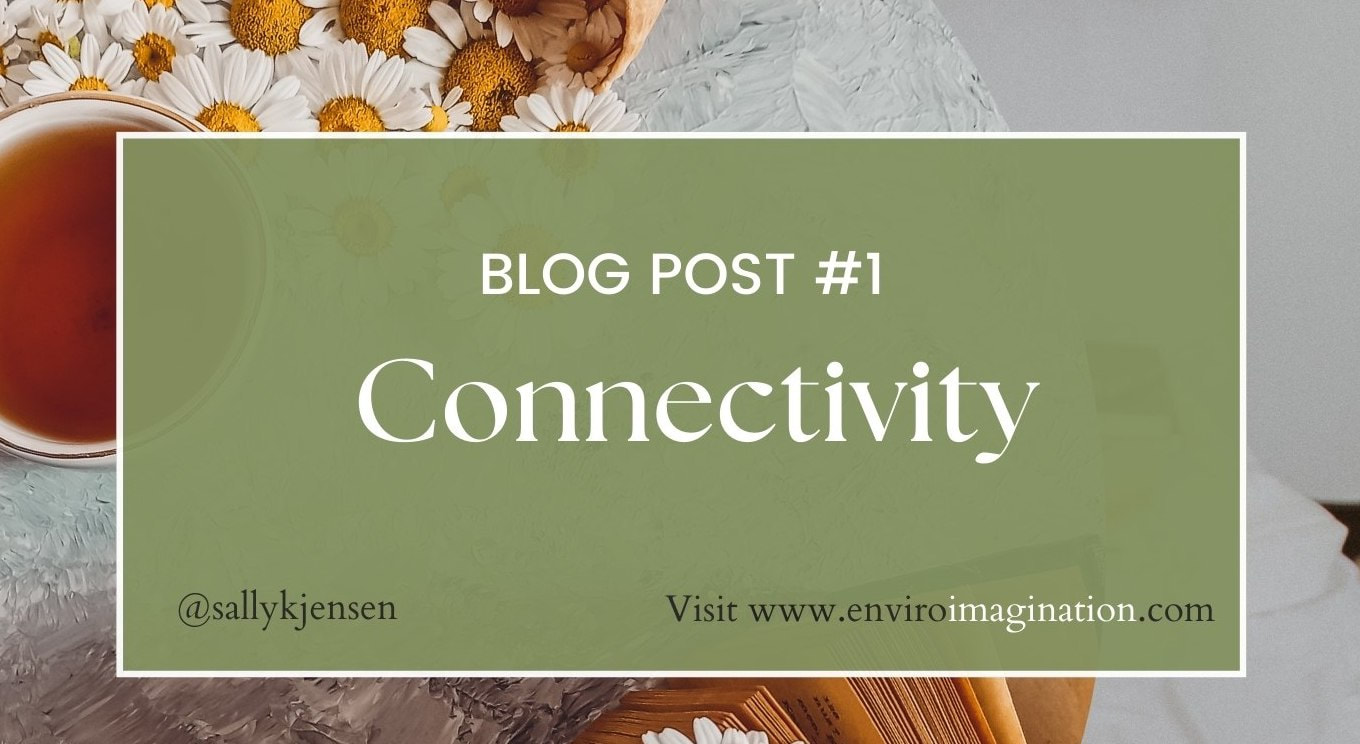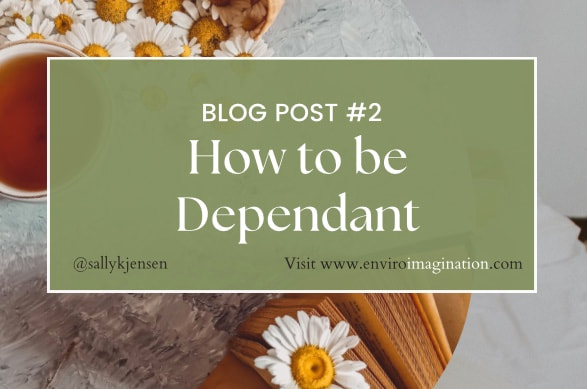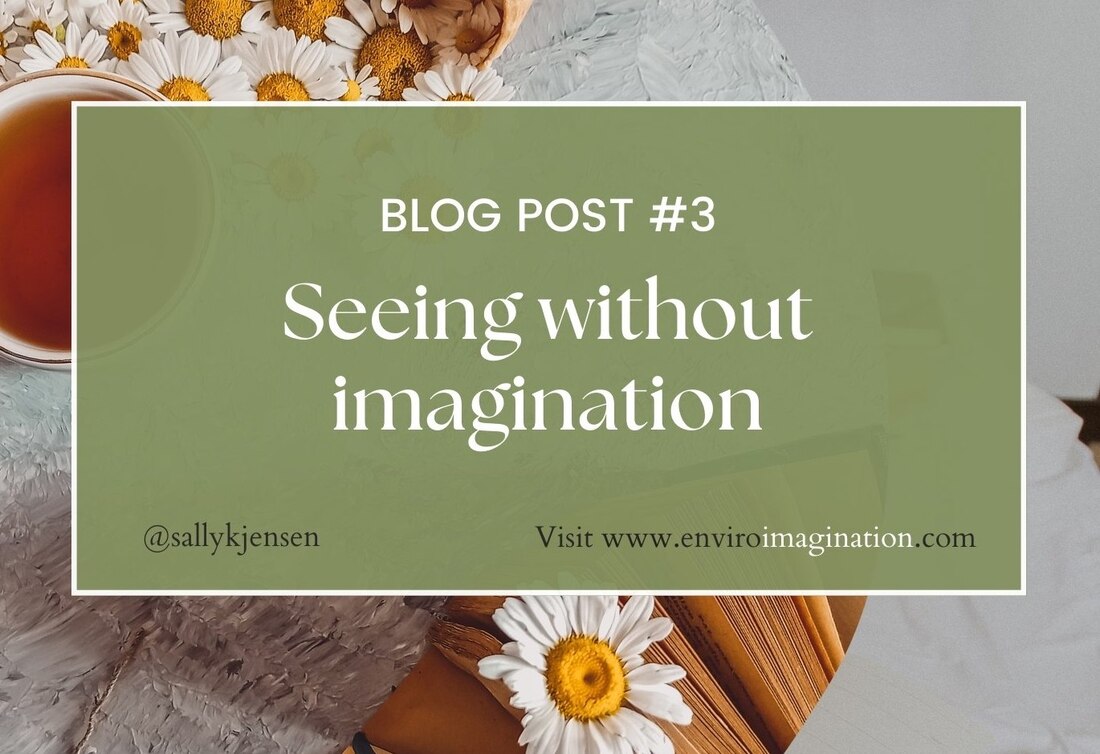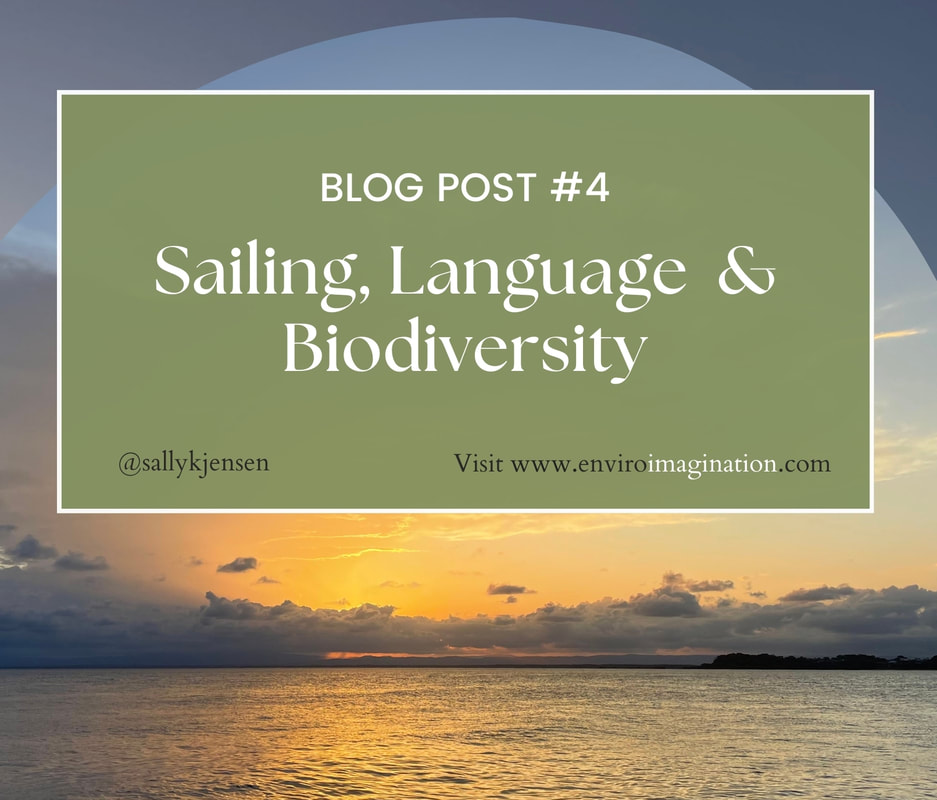|
"Connectivity is a term I have drawn from ecologists and environmental philosophers.
It is intended as a conceptual framework that focuses on relationships, flows and connections. Imagining an expanded ecology" Jessica Weir, Connectivity, 2008 I can trace back my first thoughts on imagination and environmental education to when I was travelling to different primary schools to teach workshops about water on behalf of a local water authority. I would present a scripted PowerPoint lecture about the water cycle and do some activities with the kids. It seems simple enough, but I became deeply frustrated. As I talked to the students about the world’s water systems I felt that I was hand-balling them a worldview that was distant and defunct. I spoke to a diagram called 'The Water Cycle'. We were inside a classroom, I was effectively the holder of knowledge, hoping to pass it to them by telling about the world ‘out there’, as though this would teach them effectively and they would learn about this as a topic that could be covered. I heard myself telling them inadvertently that knowing how to spell ‘precipitation’ basically meant that you knew more about rain. That reciting the terms ‘condensation’, ‘evaporation’ and ‘transpiration’ affirmed the global water cycle was being covered. Never did I walk outside with them and ask them to look at the sky. I never sought to inquire into their imagined worldview as the inner frame of their knowledge concepts or ask them how they imagined the rain was created or encouraged them to inquire how that very tree they saw every day in the playground contributed to the whole cycle. My frustrations grew with experience; I became depressed and alienated from teaching. I quit. Instead, I worked for a theatrical education company for a while where I - no kidding - sang songs about being a raindrop. Years later, living in the city with my small child, a young girl next door mentioned one day that she was learning about the water cycle at school. Cynical, I gently asked her what she had learned. Waiting to hear her recite the definition of ‘precipitation’, she answered calmly, ‘We are all connected you know’. ‘We are all connected you know’ I was lit on fire. My frustration burst into fascination; how did she learn that from the knowledge of the water cycle? What did her teacher do differently? How was the knowledge of the water cycle given, created, presented? How did it occur to her like this!? ‘We are all connected, you know’ seeped into my dreams. When the knower or learner is positioned as separate from the knowledge, they are at once positioned as separate from the world. When kids are given knowledge about the world, the world is no longer theirs, no longer the one they live in. Instead, the world becomes an external surrounding unreality that is to be gone to and returned from, manipulated, known about, bought, owned, sold, used, and possessed. When told this knowledge, they are told they are separate from the world and either entitled to it or responsible for saving it. The more I looked, the more I saw evidence of this false imaginary. Knowledge about our world has become an external power that translates into dispossession. This imaginary is false because it makes us imagine nature is external and knowledge as a kind of separate and elevated authority. The cost is not only genuine understanding, but of belonging, we lose a sense of place and an accurate orientation of self and world in relationship. Through learning about nature, children become adults totally displaced from the living world that constitutes their being. Lives are lived without noticing that breathing, eating, drinking, bathing, birthing and knowing are intrinsically nature too. Examining how we imagine nature is connected to how we imagine knowledge about it. Because while we name ‘nature’, plan for sustainability, protect ‘the environment’, and talk about it, we have become largely blind to the reality of connectivity. The world is not isolatable because we name it and it isn't external because we think about it. Nature is all the world, all life, including all thought and being. Perhaps, and possibly, our earth is changing drastically because of this radical and false disconnection that all knowledge discourses seem to perpetuate. The knowledge that we are thinking of things severs us in fact from the actual things. - Jean Piaget, 'The Child’s Conception of the World, 1997. We can watch as everyday we pass around imaginary landscapes that depict the knower as somehow separate and above the world as a result of their knowledge about it. In school and at work, people are invited to become elevated above the world by virtue of knowing about it. This is socially tempting, professionally smart, and economically sensible but ontologically and spiritually divisive. I believe this very familiar, pervasive and regular discourse of learning about environments re-creates a false paradigm where humans, nature and knowledge are torn apart. We become individual. Autonomous. Independent. Smart. Resourceful. But we lose belonging and genuine understanding of our connection with the subject of our learning and knowing. We lose consciousness of reality that was once alive as a child; a truer imaginary, where self and world are intrinsically connected, inextricably linked and profoundly co-constituted. Perceiving knowledge as an exclusively human power over, rather than a gateway into connectivity, is a great loss and must be reimagined. Are there ways of speaking of knowledge and nature that assert an essential connection between human and planetary wellbeing rather than tear them apart?
1 Comment
|
AuthorSally Jensen has a Phd and a passion for sustainability education. Her research found that understanding sustainability requires imagination. After 10 years a strange correlation between the loss of appreciation of imagination and an increase in environmental crisis has led to this blog, The Sustainability map and a life long goal to unwrap imagination, empower people and compile new ways of looking oat ourselves, each other and our relationship with nature. Archives
December 2023
Categories
All
|





 RSS Feed
RSS Feed
